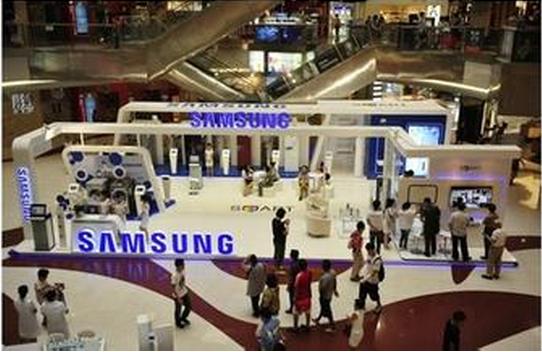
Recently, Samsung is working hard to prepare for the One UI 7 update, so that its Galaxy phone and Galaxy Book PC can better work together. However, in the process of exploring this cross-device integration, Samsung seems to be quietly building a walled garden, which undoubtedly triggered widespread concern and discussion in the industry. This article will take an in-depth look at the camera sharing and storage sharing features in the Samsung One UI 7, exploring the technical logic behind them, the user experience, and the potential industry impact.
The Camera Sharing feature, which originally appeared as Camera Sharing in One UI 6.1, has been further extended and optimized in One UI 7. The feature allows users to use their Galaxy phone as a webcam for their Galaxy Book PC, enabling video calls across devices. This innovation undoubtedly provides users with more convenience and flexibility, especially with the increasing popularity of telecommuting and online education.
To do this, however, users need to make sure Wi-Fi, Bluetooth and Camera Share are enabled on both devices. This reliance on a variety of wireless connection Settings, although to a certain extent to improve the flexibility of the function, but also brings potential stability issues. After all, the volatility of wireless connections can cause stalling or delays during video calls, which can affect the user experience.
Storage Sharing is a new feature in One UI 7 that allows users to browse pictures, music and files from their Galaxy phone or tablet directly from their Galaxy Book PC. The introduction of this function undoubtedly greatly simplifies the process of transferring data between different devices and reduces the dependence on USB cables.
However, it is worth noting that the implementation of the storage sharing function also relies on wireless connections such as Wi-Fi and Bluetooth. This means that while enjoying the convenience, users also need to face the security and privacy issues that wireless connectivity may bring. How to ensure the encryption and security of data in the transmission process will be a key consideration for Samsung in the future.
While features like camera sharing and storage sharing are technically innovative, Samsung seems to be quietly building a walled garden as it promotes them. A walled garden refers to a closed ecosystem in which users can only use services and applications provided by a specific vendor, and cannot freely connect with devices and services in other ecosystems.
In One UI 7, Samsung further strengthened the close connection between its Galaxy phone and Galaxy Book PC with features such as Camera Share and Storage Share. However, behind this close connection, it is at the expense of the user's choice and freedom. Users are confined to Samsung's ecosystem, making it difficult to seamlessly connect with other brands' devices and services.
It's even more ironic that Samsung, after discontinuing the DeX app for Windows, is trying to fill the gap by relying on Microsoft's Phone Link app. This approach not only appears contradictory, but also makes users question Samsung's ecological strategy. After all, if Samsung is truly committed to providing a more integrated experience for its users, then it should be trying to break down barriers rather than entertaining itself within the walls.
From a technical point of view, features such as camera sharing and storage sharing introduced by Samsung in One UI 7 do improve the efficiency of users working together between different devices to a certain extent. However, there are many questions about how these functions are implemented.
First, the stability of wireless connections cannot be ignored. Although the wireless connection technology such as Wi-Fi and Bluetooth has been relatively mature, in practical applications, it will still be affected by various factors. This can cause users to experience issues such as stalling, delays, and even connection interruptions when using features such as camera sharing and storage sharing, affecting the overall user experience.
Secondly, security and privacy issues also need attention. In the process of data transmission, how to ensure the encryption and security of data to prevent it from being stolen or tampered with by malicious attackers will be a problem that Samsung needs to focus on in the future. Otherwise, once the data is leaked or stolen, it will bring immeasurable losses to users.
In addition, in the process of building a walled garden, Samsung also ignored the user's choice and freedom. In a diversified market environment, users have the right to choose their favorite devices and services, and expect them to be seamless. However, Samsung's walled garden strategy limits this choice, forcing users to accept Samsung's ecosystem and services. This practice not only violates the principles of market economy, but also harms the interests of users.
The camera sharing and storage sharing features introduced by Samsung in One UI 7, although to a certain extent, have improved the efficiency of users working together between different devices, but also triggered widespread attention and discussion in the industry for the walled garden strategy. This strategic choice not only affects the user experience and interests, but also has a profound impact on the development trend of the entire industry.
First, the walled garden strategy may lead to increased monopoly and competition in the industry. As major vendors roll out their own ecosystems and services, user choice will be further limited. This may not only lead to more intense competition within the industry, but also may lead to some small manufacturers being squeezed out of the market, thus forming a monopoly situation in the industry.
Second, the walled garden strategy may hinder technological innovation and development. In a closed ecosystem, manufacturers tend to pay more attention to their own interests and development, while ignoring technological innovation and progress. This may result in some new technologies and applications with potential not being fully promoted and applied, thus hindering the development of the entire industry.
In the future, with the continuous progress of technology and the constant change of user needs, cross-device collaborative work will become an irreversible trend. However, under this trend, how should manufacturers balance their own interests and the needs of users, how to maintain openness while achieving the coordinated development of the ecosystem, will be a problem worth pondering. For Samsung, it should abandon the walled garden strategic thinking, actively embrace the concept of open cooperation, and work with other manufacturers to promote the healthy development of the entire industry.
To sum up, although the camera sharing and storage sharing features introduced by Samsung in One UI 7 are innovative, the walled garden strategy behind it has triggered widespread attention and discussion in the industry. This strategic choice not only affects the user experience and interests, but also has a profound impact on the development trend of the entire industry. In the future, Samsung should actively embrace the concept of open cooperation and work with other manufacturers to promote the development of cross-device collaborative work to provide users with a more convenient, efficient and secure service experience.

Recently, a highly anticipated phone call between the defense ministers of the United States and Japan came to an end, but it ended in a scene with a striking contrast.
Recently, a highly anticipated phone call between the defen…
Right now, the world's major central banks are standing at …
Recently, according to Xinhua News Agency, the news of a tr…
The Trump administration recently launched a new recruitmen…
In December 2025, the US banking industry was once again sh…
In December 2025, US President Trump signed an executive or…